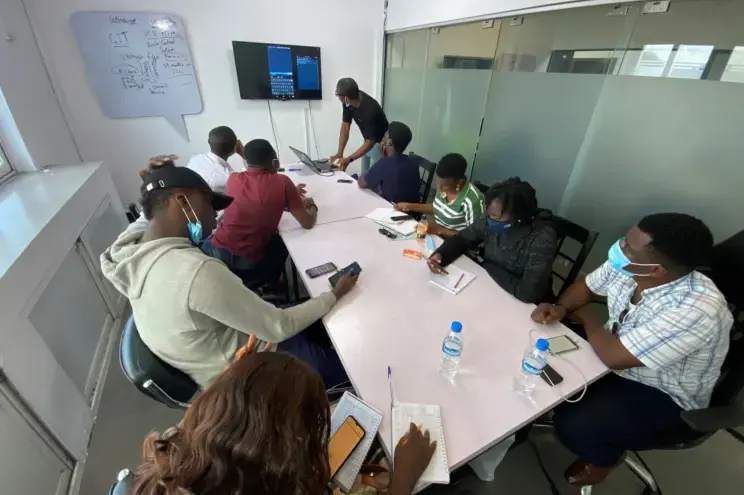Across Nigeria, a quiet storm is brewing. From the bustling streets of Lagos to the busy markets of Kano, the nation’s youth are finding their voice—and it’s becoming impossible to ignore. “Enough is enough,” they say, echoing a sentiment that has been building for years amid rising prices, unemployment, and dwindling opportunities.
A Generation on Edge
Nigeria’s youth make up over 60% of the population, yet they are the most economically and politically marginalized group. Many are educated, ambitious, and digitally connected — but locked out of a system that seems designed to stifle rather than support.
With official unemployment rates still painfully high and inflation pushing essentials beyond reach, frustration is mounting. A graduate in Port Harcourt summed it up simply:
“We did everything they asked — went to school, worked hard — but there are no jobs, no power, no security. How long should we wait?”
It’s a question echoing from university campuses to TikTok comment sections, from Twitter Spaces to street protests.
The Breaking Point

The #EndSARS protests of 2020 were the first real glimpse of what happens when Nigeria’s youth move from online outrage to physical action. Since then, there’s been a growing sense that another wave is coming — not necessarily through protests alone, but through collective civic awakening.
Young Nigerians are increasingly turning to entrepreneurship, tech innovation, and politics to drive change. Startups in Lagos and Abuja are creating global impact despite limited infrastructure. Youth-led NGOs are pushing voter education and government accountability.
But there’s a tension: will the system evolve to accommodate this energy, or continue to suppress it?
Economic Pressures Fueling the Fire
Inflation has eaten deep into the average family’s purchasing power. The removal of fuel subsidies and fluctuating exchange rates have driven transportation, food, and rent to record highs.
Meanwhile, wages remain stagnant, and public universities continue to face strike threats.
According to recent reports, nearly 50% of Nigerians under 35 are underemployed or jobless. Many are leaving the country in what has been dubbed the “Japa wave”—a mass migration of skilled workers seeking stability abroad.
Yet, those who stay are not silent anymore.
A New Kind of Protest
Unlike previous generations, today’s youth wield digital power. Social media has become the new public square — a place to expose corruption, challenge misinformation, and rally movements.
Platforms like X (formerly Twitter), Instagram, and TikTok have turned influencers into activists and creators into community organizers.
But there’s a deeper shift happening—one rooted in mindset. Nigerian youth are not just demanding change; they are building it. From tech hubs in Yaba to farms in Kaduna, they’re creating micro-solutions to macro-problems.
“If the government won’t create jobs, we’ll create ours,” said Aisha, a 28-year-old fashion entrepreneur in Kano. “We’re not lazy; we’re just tired of waiting.”
What the Future Holds
The message is clear: Nigeria’s youth are the present, not just the future. The political class can no longer afford to treat them as spectators. The next election cycles—local, state, and federal—will likely see more young people vying for power, mobilizing communities, and demanding accountability.
However, the path forward depends on whether the government chooses engagement over suppression and reform over rhetoric. Real youth inclusion goes beyond token appointments—it means policies that address the root causes of frustration: unemployment, insecurity, poor education, and corruption.
Conclusion
Nigeria stands at a generational crossroads. The frustration of its youth can either spark national renewal or deepen disillusionment.
From Lagos to Kano, one truth resounds louder than ever: this generation is awake, connected, and unwilling to be silenced.
The question is—will Nigeria listen before it’s too late?
Leave a comment
Your email address will not be published. Required fields are marked *




